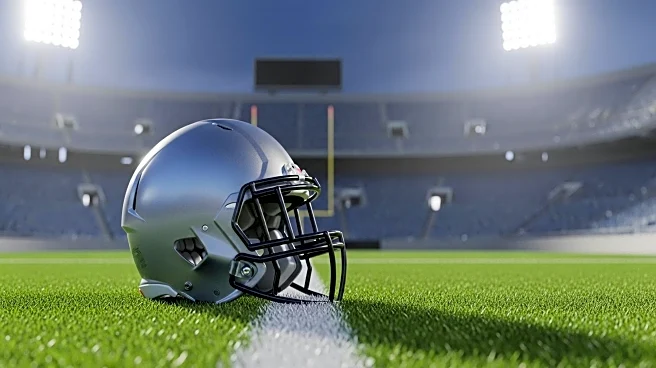What's Happening?
San Francisco 49ers General Manager John Lynch announced that star tight end George Kittle has a 'good chance' of returning from a hamstring injury for the upcoming Sunday Night Football game against the Atlanta Falcons on October 19. Kittle, who was injured during the team's Week 1 victory over the Seattle Seahawks, has been on injured reserve, missing at least four games. Despite his absence, the 49ers have managed a strong start to the season with a 4-1 record, aided by backup quarterback Mac Jones, who led the team to a dramatic overtime win against the Los Angeles Rams in Week 5. Other key players, including quarterback Brock Purdy and wide receivers Jauan Jennings and Ricky Pearsall, have also been sidelined due to injuries.
Why It's Important?
The potential return of George Kittle is significant for the 49ers as they aim to maintain their strong performance in the NFL season. Kittle's presence on the field could bolster the team's offensive capabilities, providing a reliable target for quarterbacks and enhancing the overall team dynamics. His return could also alleviate pressure on backup players and contribute to sustaining the team's winning momentum. The 49ers' ability to perform well despite multiple injuries highlights their depth and resilience, which could be crucial in their pursuit of a playoff spot.
What's Next?
If Kittle returns as expected, the 49ers will likely adjust their offensive strategies to incorporate his skills, potentially leading to improved performance against the Falcons. The team will continue to monitor the recovery of other injured players, including Brock Purdy, who is progressing but not yet ruled out for an extended period. The 49ers' coaching staff will need to make strategic decisions regarding player rotations and game plans to optimize their lineup as more players return from injuries.
Beyond the Headlines
The 49ers' handling of player injuries and their ability to adapt to changing circumstances could set a precedent for other NFL teams facing similar challenges. The team's cautious approach to Kittle's recovery reflects a broader trend in sports management prioritizing player health and long-term performance over immediate gains. This strategy may influence how teams manage injuries and player rotations in the future, emphasizing the importance of sustainable athlete management.









